As Dominica celebrates Flag Day, another honour seems only fitting- rename Flag Day, Alwin Bully Day.
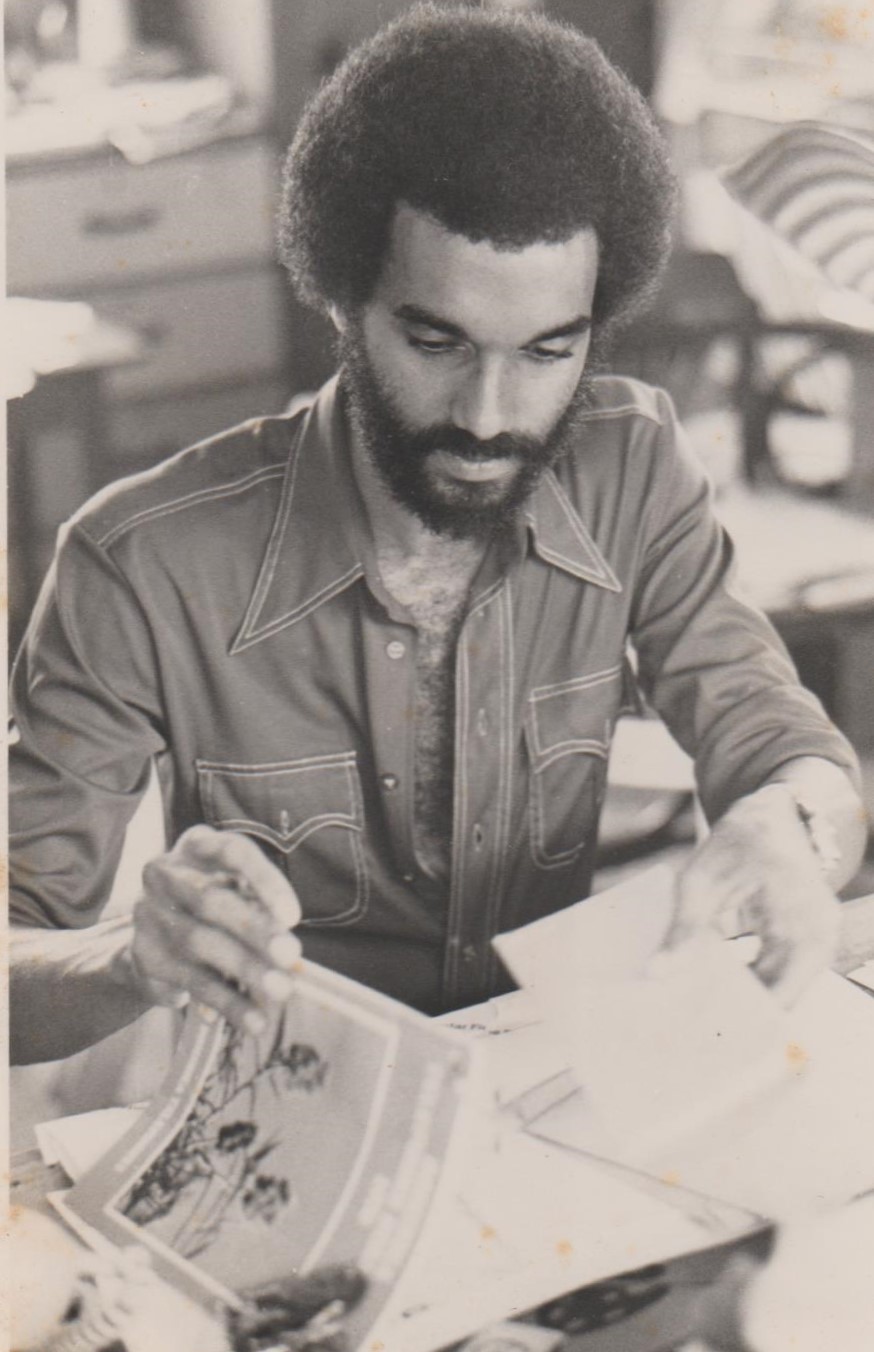
Alwin Bully is the designer of Dominica’s National Flag (Photo: Division of Culture)
Alwin Bully gave Dominica its proudest and most distinctive symbol of nationhood.
Every year, Flag Day features on the island’s Independence Calendar, reminding of Bully’s outstanding contribution to Dominica’s arts and culture. In 1978, as Dominica prepared to officially break from Great Britain, the island’s administrators launched a flag design competition, hoping to capture the essence of the Dominican character. Bully’s winning submission was an elaborate design with the Sisserou Parrot as its centerpiece, signifying the desire of a newly independent people to soar to greater heights and fulfill aspirations.
“I wanted each and every citizen to embrace the symbols, the forests, the land, the rivers and mountains and the wildlife we were blessed with, and tried to include them all on the flag.
“Of greatest importance to me is the circle with ten stars of the same size, signifying the equality of our ten parishes and every Dominican citizen in these parishes,” Bully tells eMAGE DM from his home in Goodwill, Dominica.
He is battling Parkinson’s disease, a progressive nervous system disorder that affects movement and generally confines him to his home in the care of his wife, Anita. Illness, however, has not dimmed his passion for the preservation and promotion of Dominica’s arts and culture.
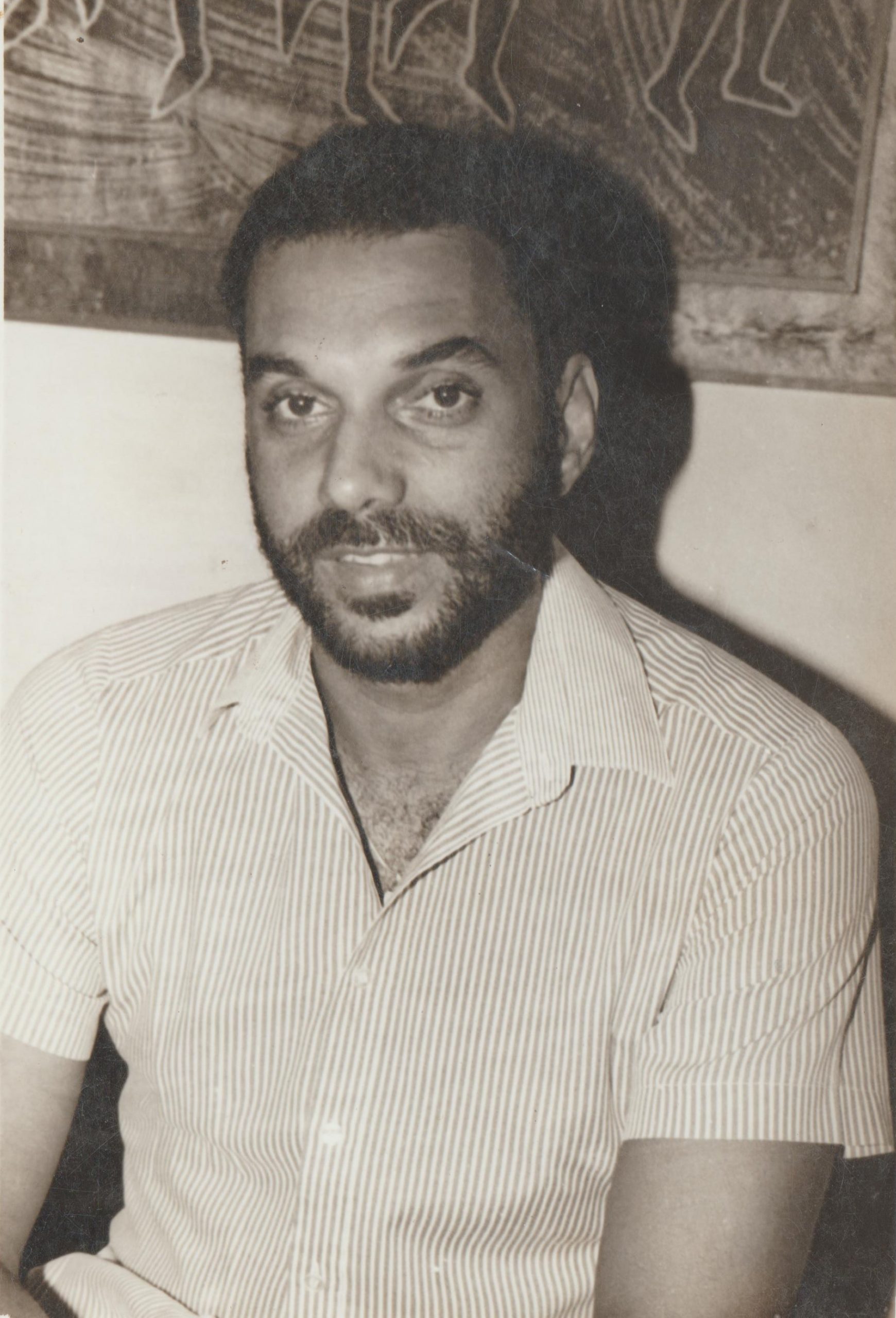
Bully was born and raised in Roseau, where he was exposed to the vibrancy of Dominica’s traditional carnival (Photo: Division of Culture)
Born and raised ‘a mitan Roso,’ on King George V Street, Alwin recalls early exposure to the vibrancy of traditional carnival as masqueraders paraded the streets of the city on Carnival Monday and Tuesday. He attributes his love for playwriting and storytelling to long summer nights spent in Giraudel, in rapt attention to tales of Soukouyan and Ladjablès.
“At Giraudel in particular, the story tellers of the village would come at night and tell us folk tales that had survived the long and dreadful journey from Africa to the Caribbean. These stories had elaborate plots and interesting characters. Further, they always included music and songs and voila I was hooked,” he recounts.
His interest in folk customs was further inspired by his parents, history enthusiasts who encouraged the research and preservation of the country’s traditions. His father was, at one time, Captain of the Dominica Defense Force and his mother, an active organizer of social and cultural events. His cousin Mabel ‘Cissie’ Caudeiron is credited for a cultural renaissance in the 1960s, which led to the promotion and wide acceptance of Dominican music, songs, dances and folkways.
“Dominica has a rich cultural heritage and was lucky to have had such persons as Mabel ‘Cissie’ Caudeiron, E. O. LeBlanc and the poet J. Ralph Casimir, who practically used their own resources to keep the culture alive. Also, because of Dominica’s maroon societies which developed deep in the forest for 300 years, we were able to maintain the African roots of our culture and ways of life of our people,” Bully explains.
Against this rich background of creative influences, Bully would go on to a stellar career as an artist, playwright, short story writer and cultural administrator.
Upon completion of studies at the University of the West Indies (Cave Hill) he returned to Dominica, serving for a short time as a teacher and Acting Principal at the Dominica Grammar School. Shortly after Independence in 1978, he established the Department of Culture becoming its first Director (Chief Cultural Officer). Joined by the likes of Pearle Christian and later, Raymond Lawrence, he set out to build a greater sense of cultural identity among Dominicans.
“When I returned home from Barbados, the islands were all in a time of renewal, with the coming of age of Rastafarianism in Jamaica and the push for the development of a new Caribbean society that recognized itself. I was, therefore, able to make my contribution through the arts and culture and I am privileged to be one of the architects of the new Caribbean Movement,” Bully states.
As Chief Cultural Officer, he oversaw the establishment of the National Cultural Council, the Dominica Artists’ Guild, the Writers’ Guild, the Dominica National Pan Association, the Carnival Organising Committee and the Komité Pou Etid Kwéyòl.
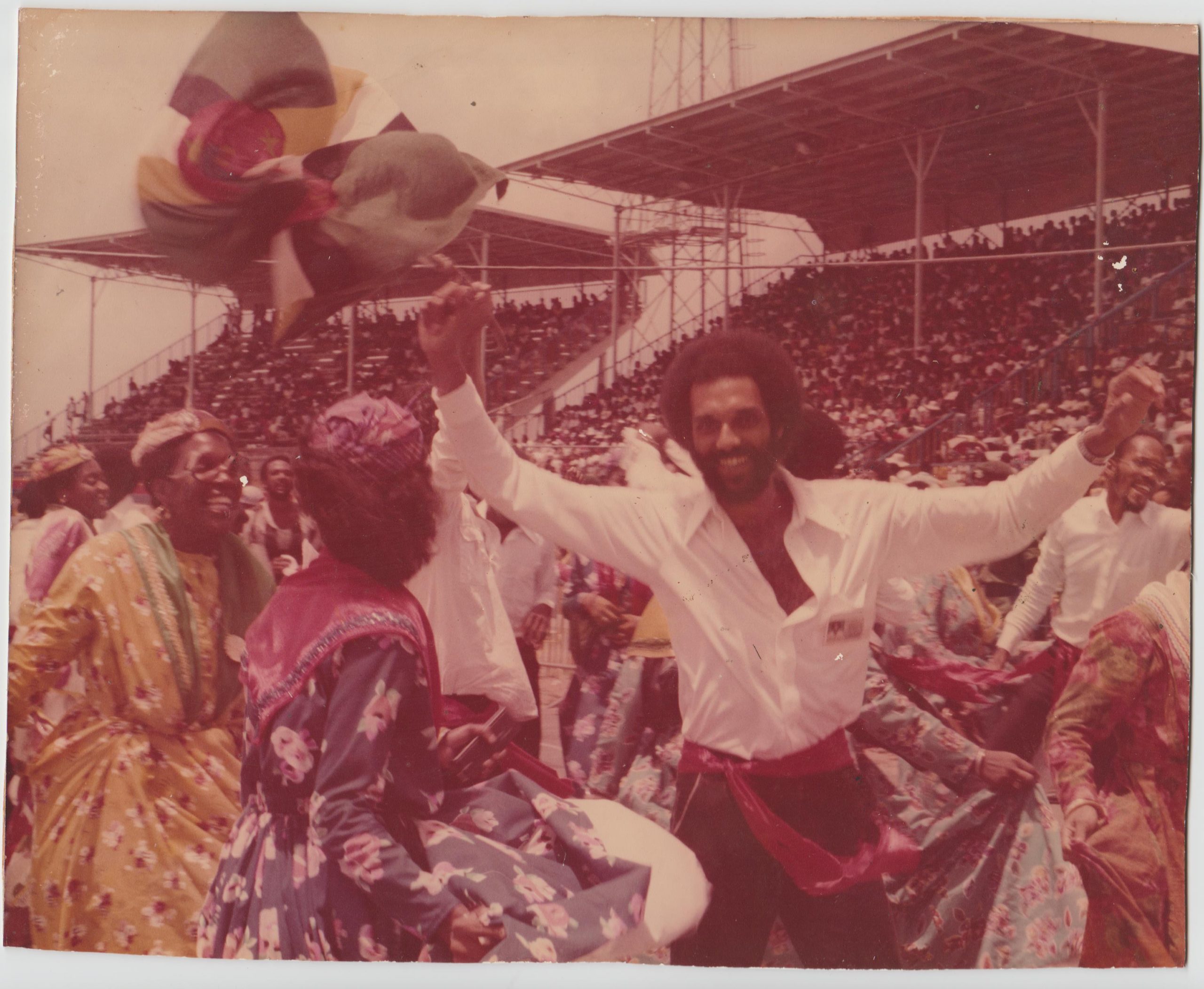
Alwin Bully established the Department of Culture in 1978 to promote, develop and preserve Dominica’s rich cultural traditions (Photo Credit: Anita Bully )
In 1987 he left for Jamaica where, for twenty years, he worked as UNESCO’s Caribbean Cultural Advisor, assisting CARICOM member states to develop their programmes and policies. He was also Chairman of the CARIFESTA Interim Festival Directorate – a regional advisory body to CARIFESTA, and in 2008, he was appointed Cultural Advisor to the Minister of Culture in Dominica. He served for many years as a member of the Board of Directors of the National Cultural Council, which oversees the implementation of projects and programs of the Cultural Division in Dominica; and is an Honorary Member of the Board of Directors of the Dominica Festivals Committee.
His accomplishments as a Caribbean playwright are no less impressive. He led the growth of theatre in 1970s Dominica with the establishment of the Little Theatre Movement, with Daniel Caudeiron. It was later renamed the People’s Action Theatre, and set the blueprint for the drama groups, which would later emerge.
Among his most celebrated works, ‘Oseyi and the Masqueraders,’ was in 2017 produced by the Caribbean Film Academy of New York. It premiered at the Trinidad and Tobago Film Festival in 2018. His radio play ‘A Dance in the Dark’ was selected for broadcast by the BBC in 1980 and his earliest comedic work, ‘Good Morning Miss Millie’ (1968), was published by Penguin Books and Macmillan Caribbean. In 2017, ‘The Ruler’, his stage adaptation of the novel ‘Ruler in Hiroona’ by GCH Thomas was published in four languages by L’Autre Souffle Company, France.
“I think through my plays in the late 1970s and the 1980s, Dominica and the rest of the Caribbean came to recognize the power of the arts and the role of the dramatist in nation building,” he says.
As he reflects on his legacy, Bully is troubled by the paucity of a vibrant theatre movement in Dominica.
“It would be good if schools and other organizations would perform at least one play annually and that theatre competitions continue to be held annually. And by extension, that we embrace the use of modern media in all its various forms in order to maintain the rich and overarching tradition of the art form.”
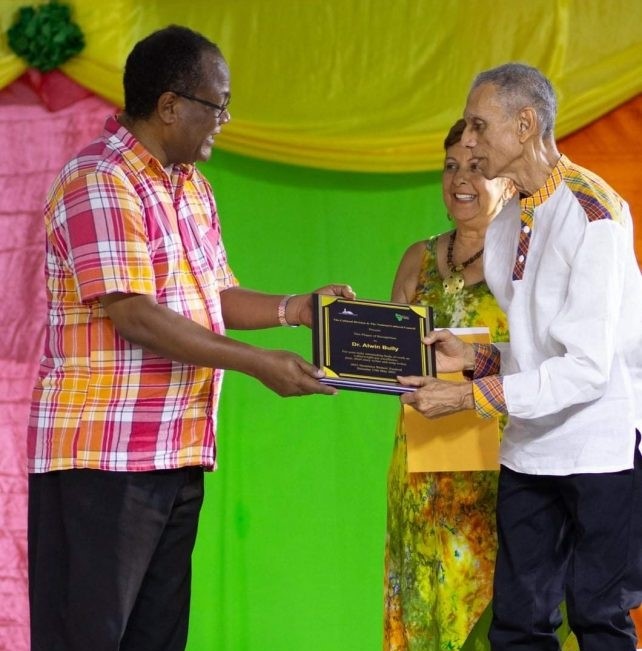
Alwin Bully accepts award from (Fmr.) Chief Cultural Officer Raymond Lawrence for his contribution to the arts and culture, in 2021. (Photo Credit-DNO)
The cultural art forms, he believes, are at risk of gradual extinction due to a lack of targeted investments in the creative industries. He recommends the review and amendment of the Culture Act to harmonise programmes with the aims and objectives of the National Cultural Council (NCC) and the Cultural Policy.
“An opportunity now exists to create tourism products from our rich cultural heritage. We must utilize the facilities available to us for widening the scope and potential of the cultural industries.
“As such, budgets for this must be increased significantly, and the role of the Cultural Officers clearly defined, in order to create a vibrant and robust industry that will be able to support itself and generate income for the stakeholders,” Bully tells eMAGE DM.
“The NCC, the advisory arm of the Department of Culture, must be able to influence the management and programs of the Cultural Division. The Government needs to also recognize the important role Cultural Tourism can play in diversifying our tourism product and contributing to sustainable economic development,” Bully adds.
For his extraordinary contribution to the development and promotion of Dominica’s culture, Bully received the Golden Drum Award in 1997, and in 2021, he was honoured during the Dominica Writers Festival by the Cultural Division and the National Cultural Council. In 1985, he was bestowed the Sisserou Award of Honor from the Government of Dominica for his design of the National Flag and is also the recipient of Q95’s National Hero Award for Lifetime Achievement in Arts, Theatre and Culture.
As Dominica celebrates Flag Day, another honour seems only fitting- rename Flag Day, Alwin Bully Day.

More from Culture
OH SO JAZZY AND CLASSY
Jazz ‘n Creole made a triumphant return to Dominica's entertainment scene on May 1st, 2022. Renowned as the fashion-centric, family-oriented, daytime …
The New Face of Culture
Dominica’s culture has a new face. Earlson Matthew takes over as Chief Cultural Officer from Raymond Lawrence, the long-time front man …



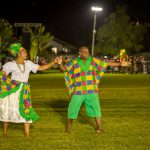

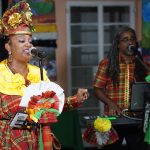






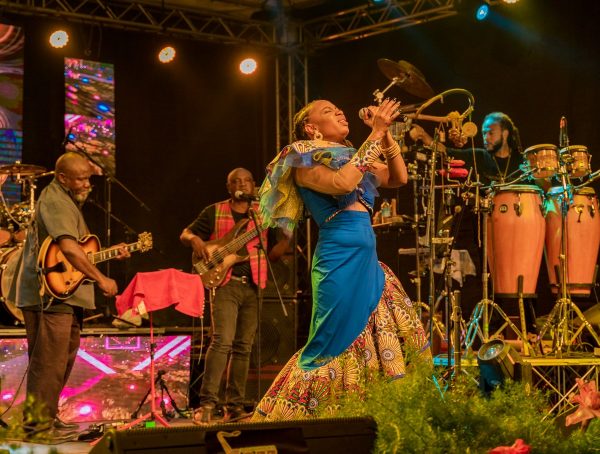












REVIEW: Choral Harvest- A Sisserou Singers Triumph!
The Sixth Form Sisserou Singers (SFSS), a cultural institution in its 27th year, is showing signs of reinvention and growth. The …